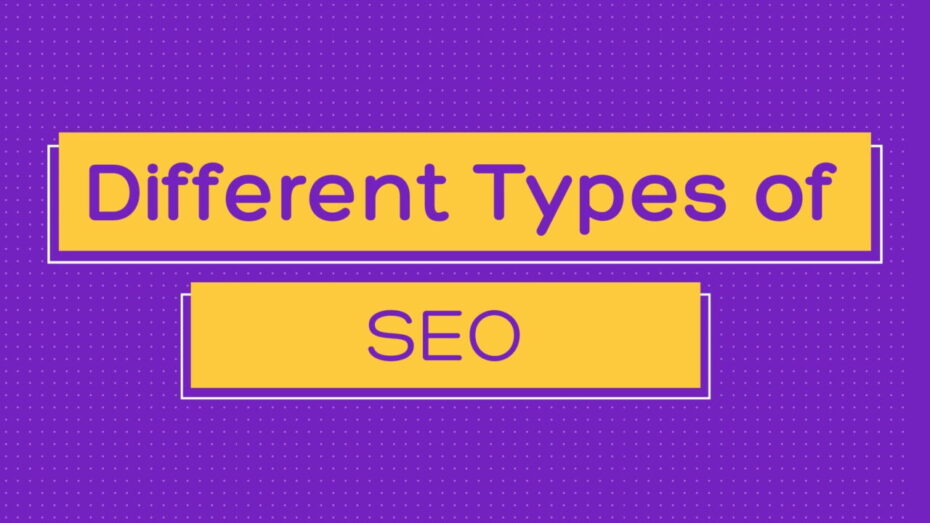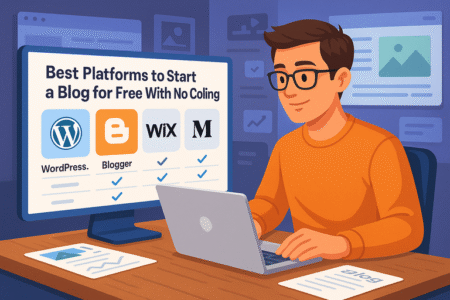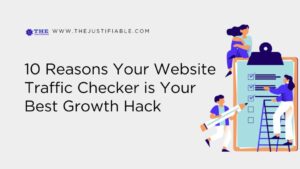Table of Contents
To effectively boost your website traffic, understanding the different types of SEO is crucial. This article will explore four essential SEO strategies that can drive more visitors to your site and improve your online presence.
1. On-Page SEO: Optimize Your Website Content
On-page SEO is a critical aspect of optimizing your website to ensure it ranks well in search engine results. By focusing on on-page elements, you can enhance your site’s visibility and drive more organic traffic. This involves optimizing your content, keywords, and meta tags, which are fundamental components of on-page SEO.
Most importantly, understanding the different types of SEO can help you apply the right strategies to your website. On-page SEO is about making your content relevant and valuable to both users and search engines. I recommend prioritizing high-quality content that meets user intent.
SEO Services Recommendations
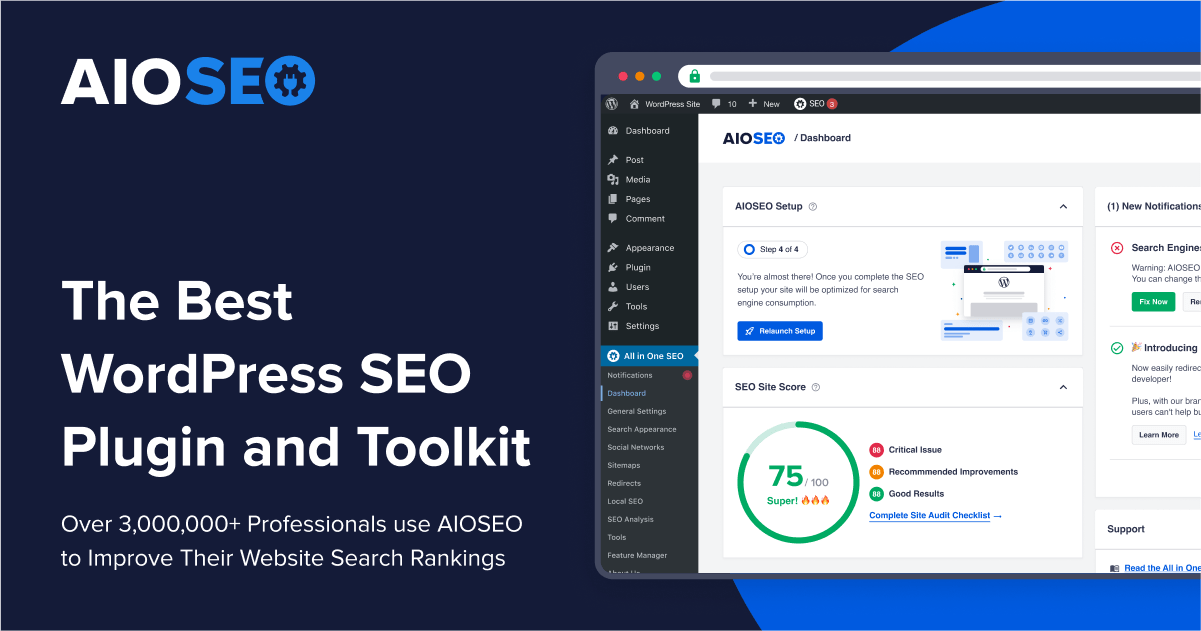 AIOSEO
| 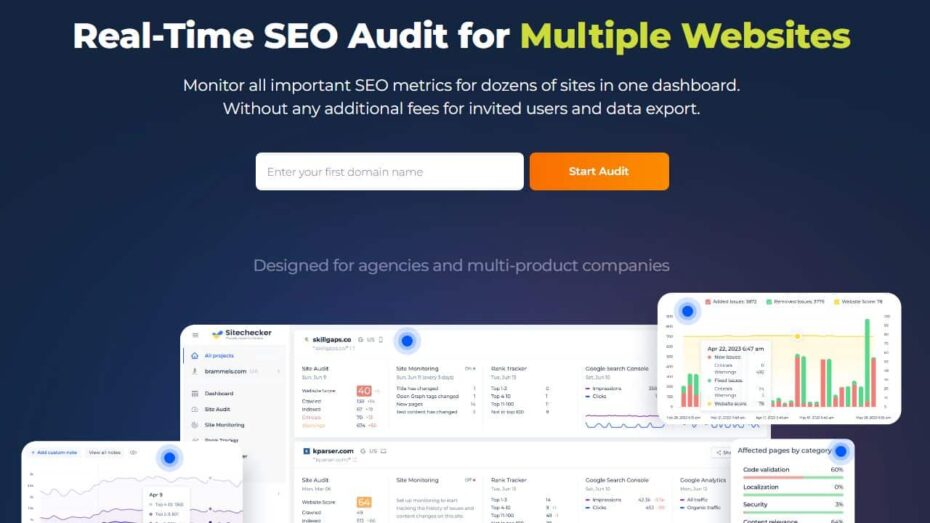 Sitechecker
| 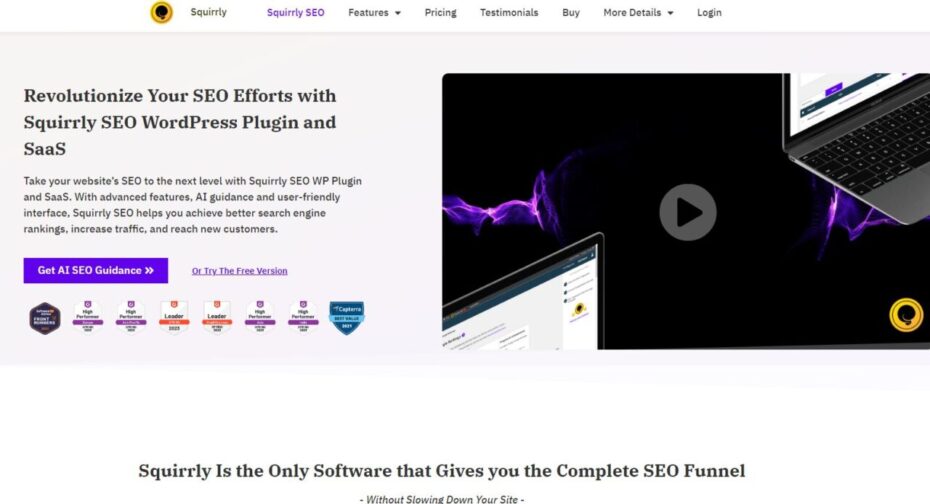 Squirrly
|
Crafting High-Quality Content for SEO Success
Creating high-quality content is essential for on-page SEO success. Your content should be engaging, informative, and valuable to your audience. I believe providing detailed, well-researched information helps build trust and authority.
One way to ensure your content stands out is by addressing your audience’s pain points and questions. My suggestion is to use a conversational tone that resonates with your readers. Additionally, incorporating visuals like images, videos, and infographics can make your content more appealing and easier to understand.
Consistency is also key. I would say regularly updating your content keeps it relevant and fresh. This not only improves your SEO but also keeps your audience engaged. Lastly, make sure your content is easily readable by using short paragraphs, bullet points, and subheadings.
Effective Use of Keywords in On-Page SEO
Keywords play a vital role in on-page SEO. My recommendation is to use them naturally throughout your content. This helps search engines understand what your page is about without resorting to keyword stuffing, which can harm your rankings.
Start by researching relevant keywords that your target audience is likely to use. I suggest using tools like SEOPowerSuite or Ahrefs for this purpose. Once you have your keywords, incorporate them into your content in a way that feels natural and unforced.
It’s also important to include keywords in strategic places such as the title, headers, and the first 100 words of your content. I advise also using related keywords to avoid redundancy and to cover a wider range of search queries. Additionally, using long-tail keywords can help you rank for more specific queries.
Enhancing Meta Tags and Descriptions
Meta tags and descriptions are crucial for on-page SEO as they help search engines and users understand the content of your page. I strongly believe optimizing these elements can significantly impact your click-through rates and rankings.
Your meta title should be compelling and include your primary keyword. My recommendation is to keep it under 60 characters to ensure it displays properly in search results. Similarly, your meta description should provide a brief but informative summary of your page content, including relevant keywords.
Moreover, it’s important to write unique meta tags and descriptions for each page on your website. I point out that duplicate meta information can confuse search engines and negatively impact your SEO. Lastly, always include a call to action in your meta description to encourage users to click through to your site.
2. Off-Page SEO: Building Authority and Trust
Off-page SEO is all about building authority and trust for your website. By focusing on strategies like acquiring high-quality backlinks, leveraging social media signals, and engaging in influencer outreach, you can significantly boost your website’s credibility and search engine rankings. I recommend paying close attention to these off-page SEO techniques to see substantial improvements.
Building authority takes time and effort, but it is essential for long-term success. My advice is to consistently work on these strategies to establish a strong online presence. Trust is crucial for attracting and retaining visitors, and off-page SEO plays a vital role in achieving this.
Importance of Backlinks for Off-Page SEO
Backlinks are one of the most important factors in off-page SEO. They act as votes of confidence from other websites, signaling to search engines that your content is valuable and trustworthy. I suggest focusing on acquiring high-quality backlinks from reputable sites in your industry.
One effective way to gain backlinks is through guest posting. My suggestion is to write valuable content for other blogs and include links back to your site. Additionally, creating shareable content, like infographics and research reports, can attract natural backlinks from other websites.
It’s important to avoid black-hat SEO practices, such as buying backlinks. I advise focusing on building relationships with other website owners and earning links organically. This approach will be more sustainable and beneficial in the long run.
Lastly, monitoring your backlink profile is crucial. I point out that tools like Ahrefs or Moz can help you keep track of your backlinks and ensure they are of high quality. Disavowing any harmful or spammy links can protect your site’s reputation.
Social Media Signals and Their Impact
Social media signals, such as likes, shares, and comments, can significantly impact your off-page SEO. I believe that an active social media presence helps increase your website’s visibility and credibility. Engaging with your audience on platforms like Facebook, Twitter, and LinkedIn can drive traffic to your site and improve your rankings.
One strategy to leverage social media is to create and share high-quality content regularly. My recommendation is to tailor your content to each platform’s audience to maximize engagement. Using eye-catching visuals and compelling headlines can also increase the shareability of your content.
Collaborating with social media influencers can further enhance your reach. I suggest identifying influencers in your niche and building relationships with them. Their endorsement can help you gain more followers and drive more traffic to your website.
Finally, monitoring your social media performance is essential. I advise using tools like Hootsuite or Buffer to track your engagement metrics and adjust your strategy accordingly. This will help you identify what works best and optimize your social media efforts for better results.
Influencer Outreach for Enhanced SEO
Influencer outreach is a powerful off-page SEO strategy that can help you build authority and trust. By collaborating with influencers in your industry, you can reach a wider audience and gain valuable endorsements. I recommend identifying key influencers and building genuine relationships with them.
Start by researching influencers who align with your brand values and target audience. My suggestion is to use tools like BuzzSumo or Followerwonk to find influencers with a significant following and high engagement rates. Reaching out to them with personalized messages can help you establish a connection.
Offering value to influencers is crucial for successful collaborations. I advise providing them with exclusive content, early access to products, or co-creating content together. This mutually beneficial relationship can result in high-quality backlinks and increased traffic to your site.
Consistency is key in influencer outreach. I would say maintaining regular communication and nurturing your relationships with influencers can lead to long-term partnerships. This ongoing collaboration can continuously boost your off-page SEO efforts and enhance your online presence.
3. Technical SEO: Ensuring Website Performance
Technical SEO focuses on optimizing your website’s infrastructure to improve its performance and user experience. Ensuring your website is fast, secure, and structured properly can significantly enhance its search engine rankings and user satisfaction. I recommend paying attention to these technical aspects to boost your overall SEO efforts.
A well-optimized website not only attracts more visitors but also keeps them engaged. My suggestion is to regularly audit your site’s technical performance to identify and fix any issues. This proactive approach can help maintain a seamless user experience and improve your search engine visibility.
Website Speed and Mobile Friendliness
Website speed is a critical factor in both user experience and SEO. Slow-loading pages can frustrate users and lead to higher bounce rates. I believe optimizing your website’s speed should be a top priority. Tools like Google PageSpeed Insights can help you identify areas for improvement.
To enhance your site’s speed, consider compressing images, minifying CSS and JavaScript files, and leveraging browser caching. My advice is to use a content delivery network (CDN) to distribute your content more efficiently across the globe. These steps can significantly reduce load times and improve user experience.
Mobile friendliness is equally important in today’s digital landscape. I strongly believe that with the majority of users accessing websites via mobile devices, having a responsive design is crucial. I suggest testing your site’s mobile compatibility using Google’s Mobile-Friendly Test tool and making necessary adjustments to ensure a seamless experience across all devices.
Additionally, focusing on mobile-first indexing can improve your SEO. I point out that search engines prioritize mobile-optimized content, so ensuring your site performs well on mobile can boost your rankings. Regularly updating your mobile design and functionality can keep your site competitive in search results.
Implementing Secure HTTPS Protocols
Website security is a vital component of technical SEO. Implementing HTTPS protocols not only protects your site and users’ data but also improves your search engine rankings. I advise transitioning from HTTP to HTTPS to enhance security and build trust with your audience.
Google considers HTTPS as a ranking signal, which means secure sites are more likely to rank higher in search results. My recommendation is to obtain an SSL certificate and ensure all pages on your site use HTTPS. This not only secures your website but also boosts its credibility.
Another benefit of HTTPS is the protection against data breaches and attacks. I suggest regularly updating your SSL certificate and monitoring for any security vulnerabilities. This proactive approach can help maintain a secure and trustworthy website.
Furthermore, HTTPS can improve user experience by providing a secure browsing environment. I strongly believe that users are more likely to trust and engage with a site that prioritizes their security. Ensuring your site is secure can lead to higher user satisfaction and better SEO performance.
Structured Data and Schema Markup
Structured data and schema markup are essential for helping search engines understand your website’s content. By providing additional context, you can improve your search visibility and enhance the appearance of your listings. I recommend implementing structured data to make your content more accessible and appealing to search engines.
Schema markup can help your site achieve rich snippets in search results, such as star ratings, images, and other interactive elements. My suggestion is to use tools like Google’s Structured Data Markup Helper to add schema markup to your site easily. This can make your listings stand out and attract more clicks.
Additionally, structured data can improve the relevance of your content to search queries. I advise marking up important information like product details, reviews, and events to provide search engines with a clearer understanding of your content. This can lead to better rankings and more targeted traffic.
Finally, regularly testing and updating your structured data is crucial. I point out that using tools like Google’s Rich Results Test can help you identify and fix any issues with your markup. Keeping your structured data accurate and up-to-date ensures your content remains optimized for search engines and users.
4. Local SEO: Targeting Local Audiences Effectively
Local SEO is essential for businesses looking to attract customers from their immediate geographic area. By optimizing your online presence for local searches, you can significantly increase visibility and drive more foot traffic to your physical location. I recommend focusing on key local SEO strategies to target your local audience effectively.
Understanding the nuances of local SEO can help you stand out in local search results. My suggestion is to start with optimizing your Google My Business listing, ensuring accurate local citations, and actively managing customer reviews. These steps can create a solid foundation for your local SEO efforts.
Optimizing Google My Business Listing
Optimizing your Google My Business (GMB) listing is crucial for local SEO. A well-maintained GMB profile can enhance your visibility in local searches and Google Maps. I strongly believe that updating your business information, such as address, phone number, and operating hours, is essential for accuracy.
Adding high-quality images of your business can make your listing more appealing. I suggest including pictures of your storefront, interior, and products. These visuals can help potential customers get a better sense of what to expect when they visit.
Responding to customer questions and reviews on your GMB profile is another important aspect. My advice is to engage with your audience by providing helpful and prompt responses. This not only improves your customer service but also signals to Google that you are an active and reliable business.
Regularly posting updates and special offers on your GMB listing can keep your audience informed and engaged. I recommend utilizing this feature to promote events, discounts, and new products. Keeping your profile active can enhance your local search presence and attract more customers.
Local Citations and Directory Listings
Local citations and directory listings play a significant role in local SEO. Consistent and accurate listings across various online directories can improve your search engine rankings. I suggest starting with major directories like Yelp, Yellow Pages, and local business directories relevant to your industry.
Ensuring your business information is consistent across all platforms is crucial. I recommend double-checking your name, address, and phone number (NAP) for accuracy. Inconsistent information can confuse search engines and negatively impact your local SEO efforts.
Building local citations on niche-specific directories can further enhance your visibility. My advice is to identify industry-specific directories where your target audience is likely to search for businesses like yours. This targeted approach can help you reach a more relevant audience.
Regularly auditing your citations and directory listings is essential for maintaining accuracy. I point out that using tools like Moz Local or BrightLocal can help you monitor and manage your listings efficiently. Keeping your information up-to-date can boost your local SEO and improve customer trust.
Managing Customer Reviews and Ratings
Managing customer reviews and ratings is a critical aspect of local SEO. Positive reviews can enhance your online reputation and attract more customers. I believe that encouraging satisfied customers to leave reviews can significantly impact your business.
Responding to all reviews, whether positive or negative, is important. My recommendation is to address positive reviews with gratitude and professionalism. For negative reviews, I suggest offering a solution and showing your willingness to resolve issues. This proactive approach can improve your reputation and customer relationships.
Regularly monitoring review sites and responding promptly can help you stay on top of customer feedback. I advise using tools like Google Alerts or dedicated review management software to track mentions of your business. This can help you address concerns quickly and maintain a positive online presence.
Encouraging customers to leave reviews on multiple platforms can diversify your review profile. I strongly believe that having reviews on Google, Yelp, Facebook, and industry-specific sites can enhance your credibility. This broader presence can improve your local SEO and attract more customers to your business.
Conclusion
Mastering these four different types of SEO can significantly increase your website traffic. By implementing on-page, off-page, technical, and local SEO strategies, you’ll build a robust online presence and attract more visitors to your site.


